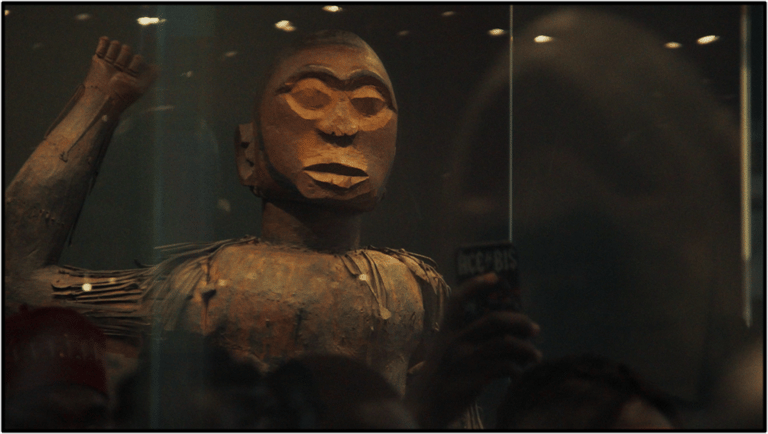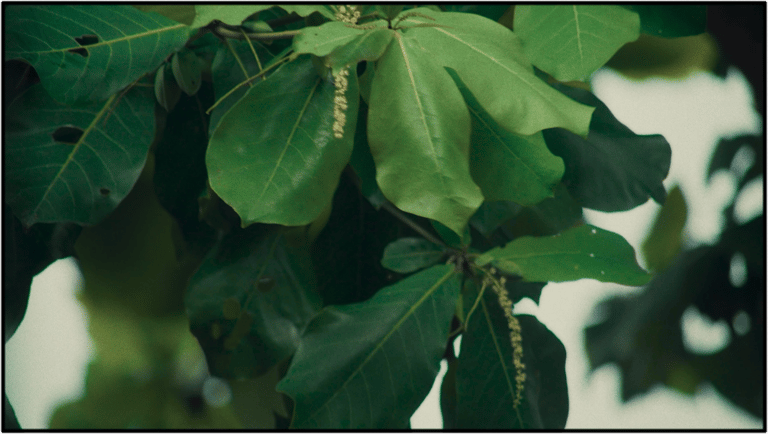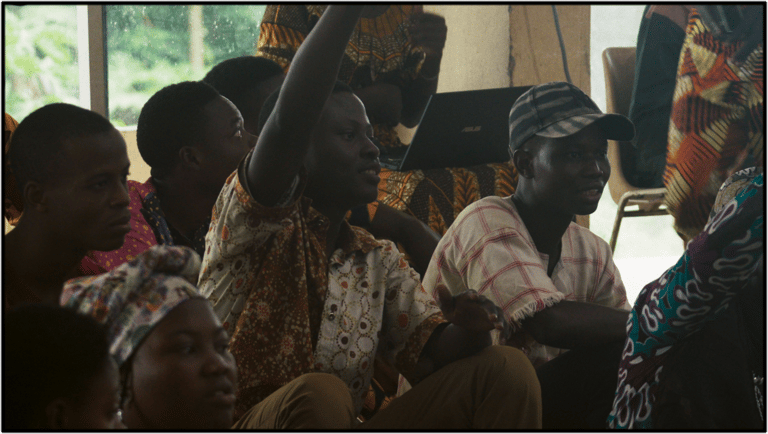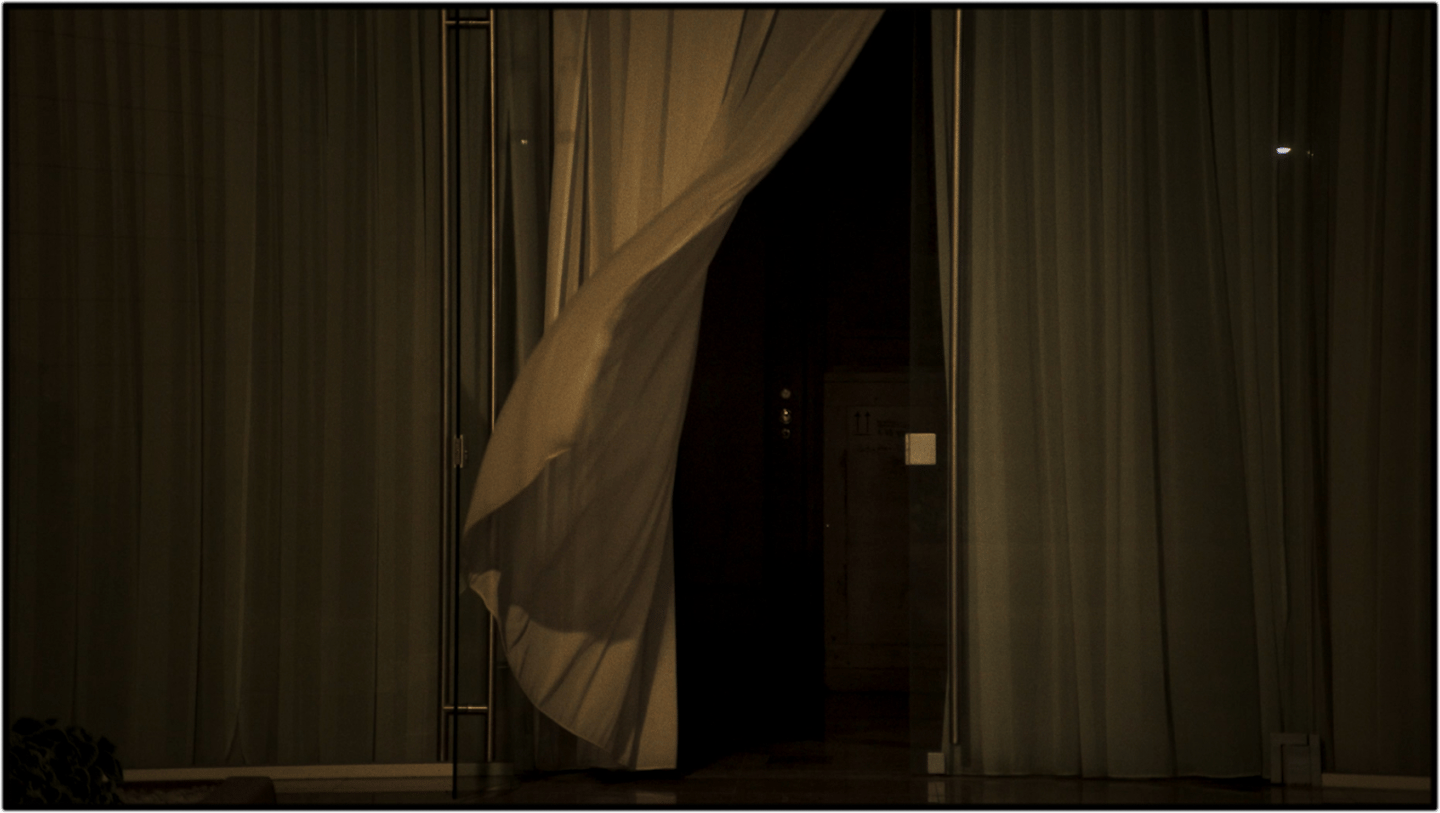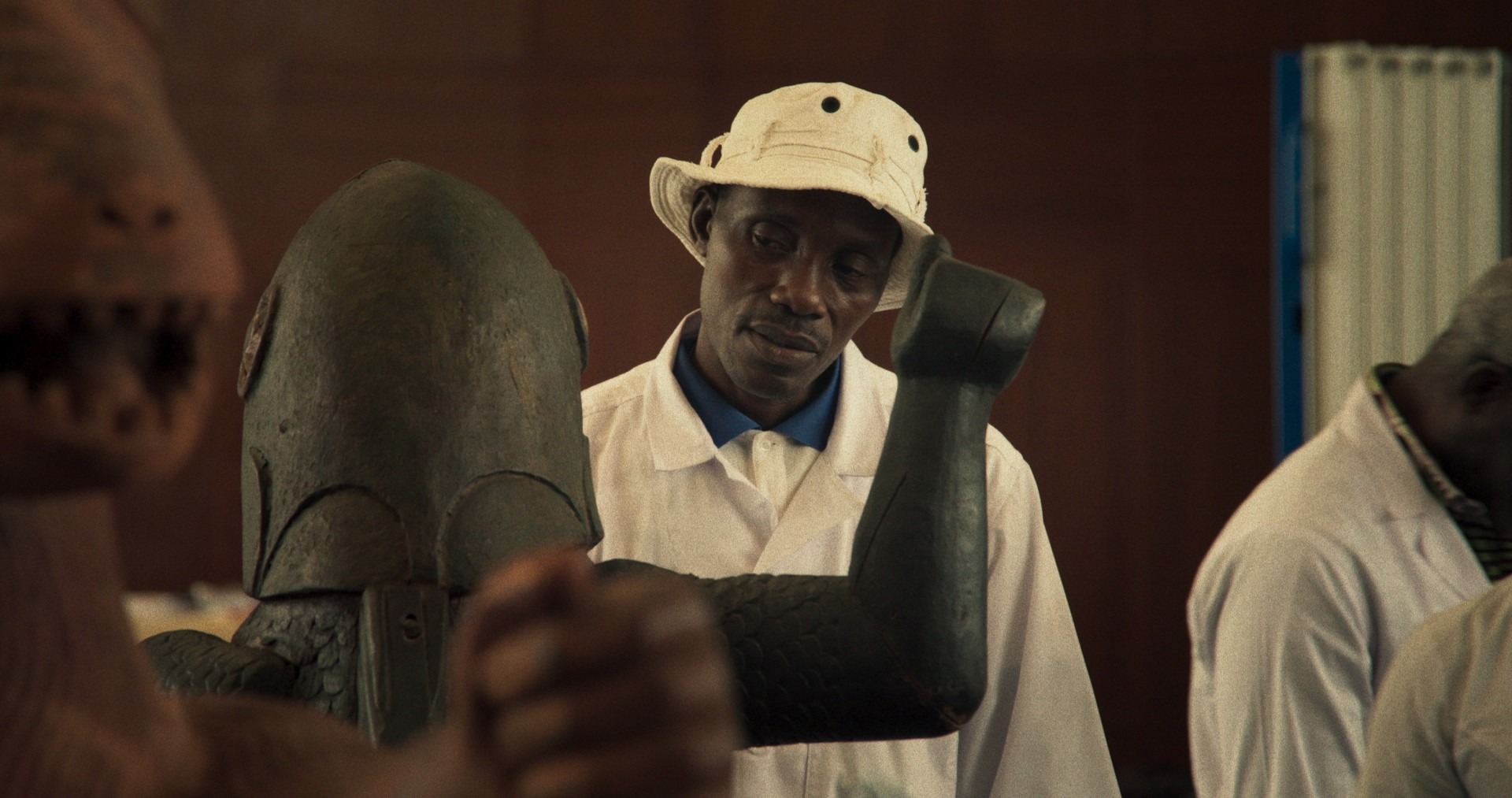
DAHOMEY
France, Senegal, Benin, 2023, 67 min., Fon, French, English
Director: Mati Diop
Screenwriter: Mati Diop
DOP: Josephine Drouin Viallard
Editor: Gabriel Gonzalez
Composers: Wally Badarou, Dean Blunt
Sound: Nicolas Becker
Producers: Eve Robin, Judith Lou Lévy, Mati Diop


26 royal treasures from the Kingdom of Dahomey begin their journey home after 150 years of captivity. These artefacts were among countless others plundered by colonial troops and stored in French museum vaults. Their place of origin in West Africa – the present-day Republic of Benin – has changed over the years. The link with the history recorded in the abducted artefacts has been broken for too long. The return home raises sharp debates in contemporary society about the status and significance of the returnees today. One of the pressing questions is why only 26 of 7000 are returning. Mati Diop gives voice to the ancient sculptures to reflect on their forced journey and reveal the complexity of the postcolonial world.
The original documentary “Dahomey” premiered at this year's Berlin Film Festival, where it was awarded the Golden Bear.



The kingdom of Dahomey (Danxomé in Fon language) is a former African kingdom located in the south of today’s Republic of Benin. It was founded in the 17th century by King Houegbadja. Under his reign and that of his descendants - a three centuries dynasty - the kingdom was a considerable regional power, with a highly structured local economy, prosperous transatlantic trade, a centralized administration, a system of taxes and a powerful army including the famous Amazon women (Agodjié). In 1892, under the reign of King Behanzin, Colonel Dodds took Abomey, the kingdom’s capital, and in 1895, Dahomey became part of the French colonial empire. When it gained independence on August 1st, 1960, the country became the Republic of Dahomey.
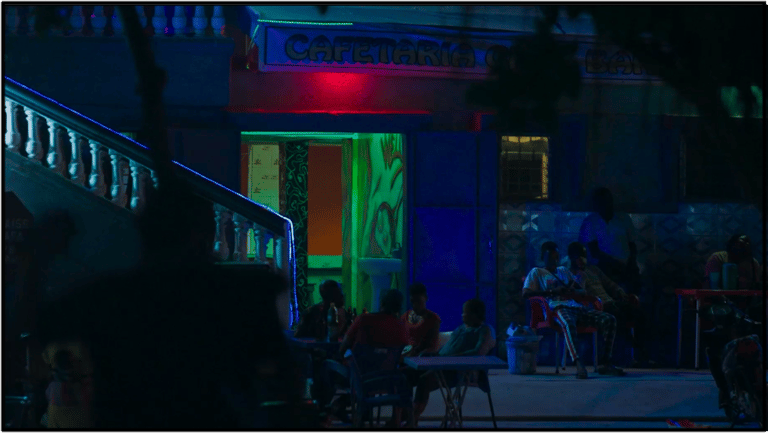

Abomey was the “capital” or, more precisely, the seat of the kingdom of Dahomey. The Houegbadja dynasty that reigned from the 17th to the 19th century turned it into a real city-state. Impressive palaces, lively court arts and crafts and Vodun religion practicing could be found on every street corner. Through Abomey city each king made his mark, aligned with their motto: “Dahomey always greater!”. With agricultural development and the slave trade, Abomey was a crossroads city. Its palaces with exceptional universal value are UNESCO World Heritage Sites.
